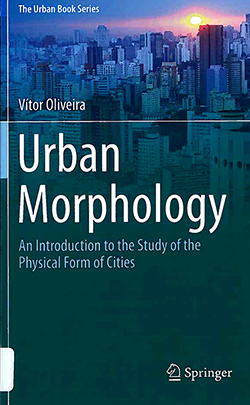Urban morphology : an introduction to the study of the physical form of cities

This is a book about cities or, more precisely, about the physical form of cities. It starts presenting the main elements of urban form – streets, urban blocks, plots and buildings – structuring our cities and the fundamental actors and processes of transformation shaping these elements. It then applies this analytical framework to describe the evolution of cities over history as well as to explain the functioning of contemporary cities. After the initial focus on the ‘object’ (cities) the book describes how different researchers and different schools of thought have been dealing with this object since the emergence of Urban Morphology, as the science of urban form, in the turning to the twentieth century. Finally, the book tries to identify what are the most important (and specific) contributions that Urban Morphology has to offer to contemporary cities, societies and economies.





